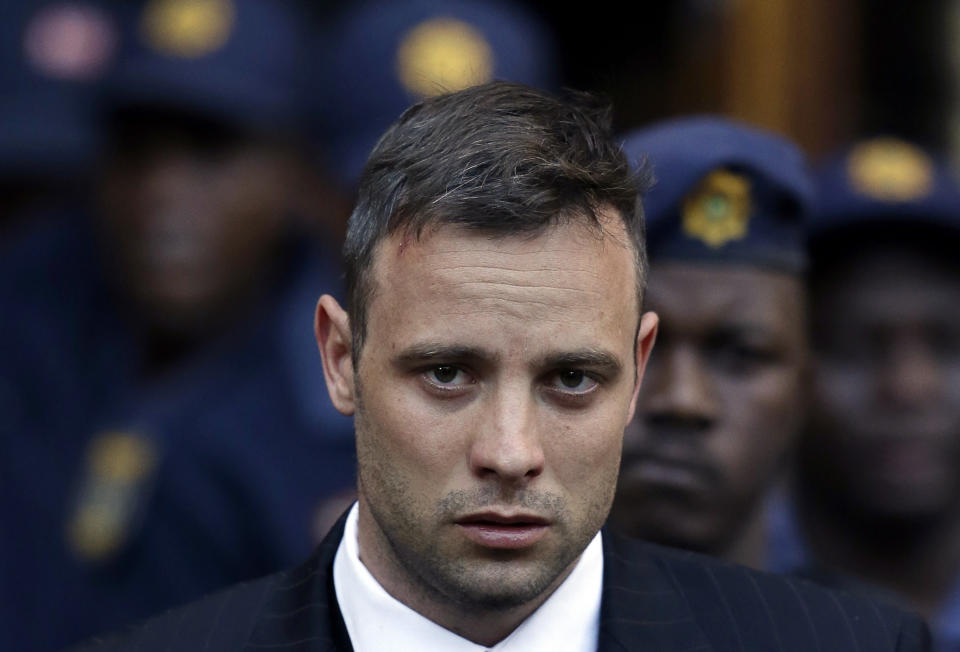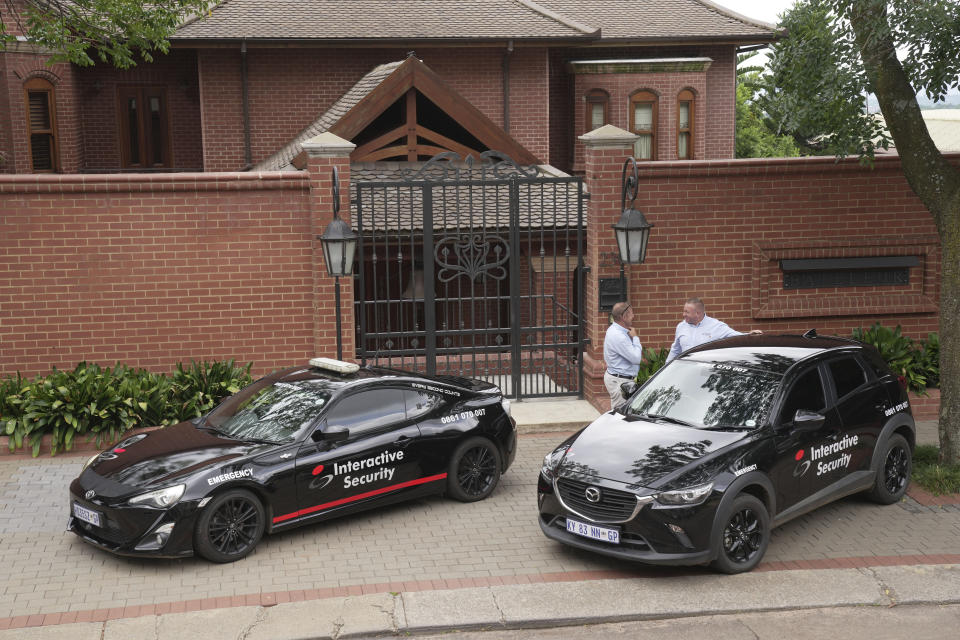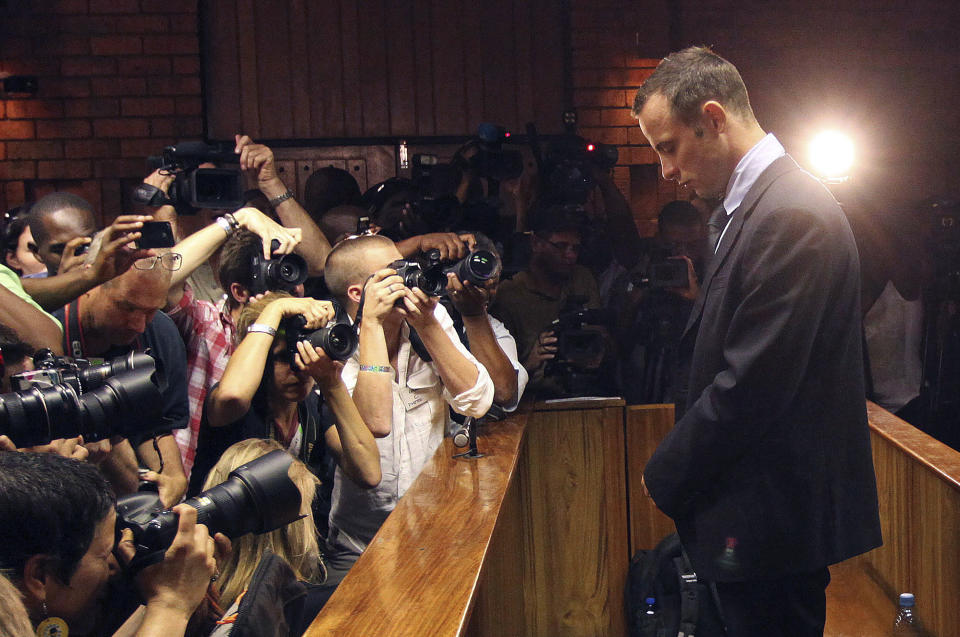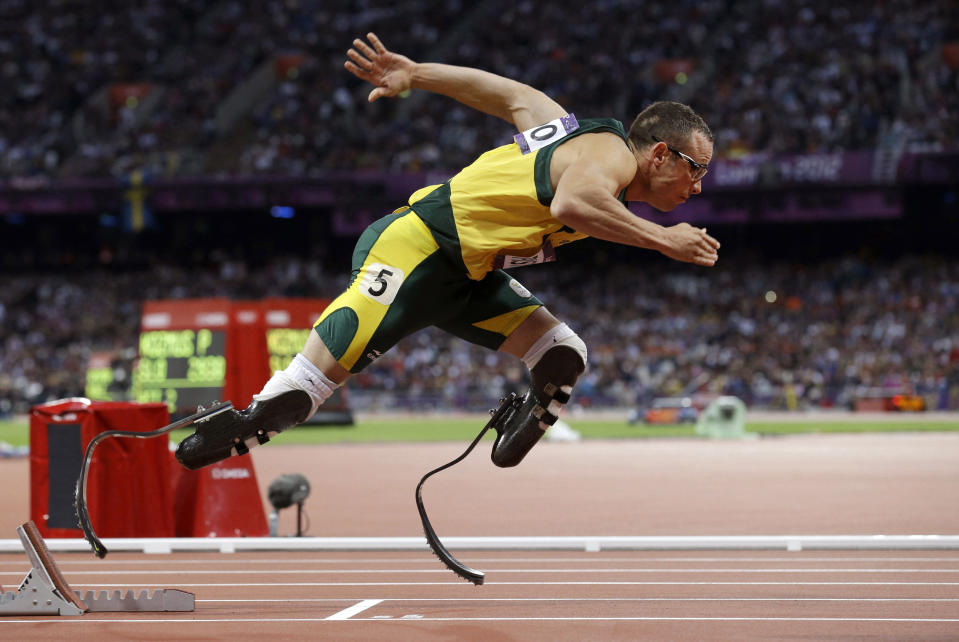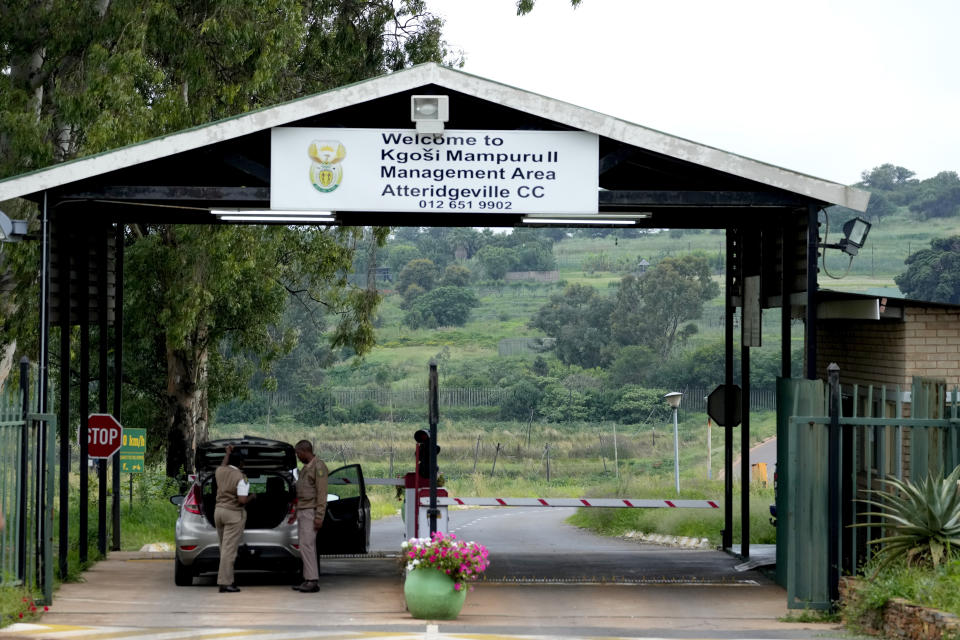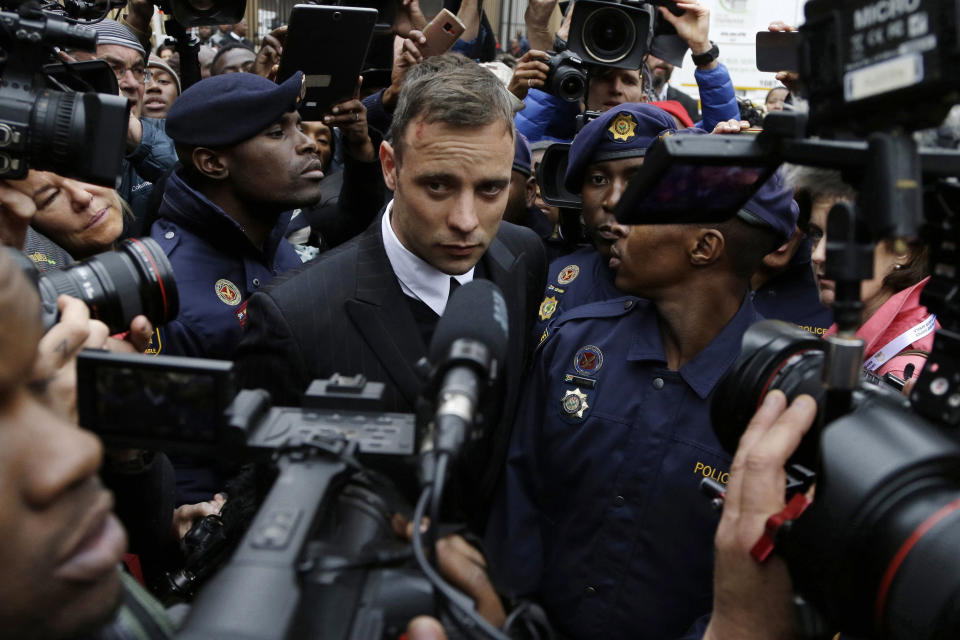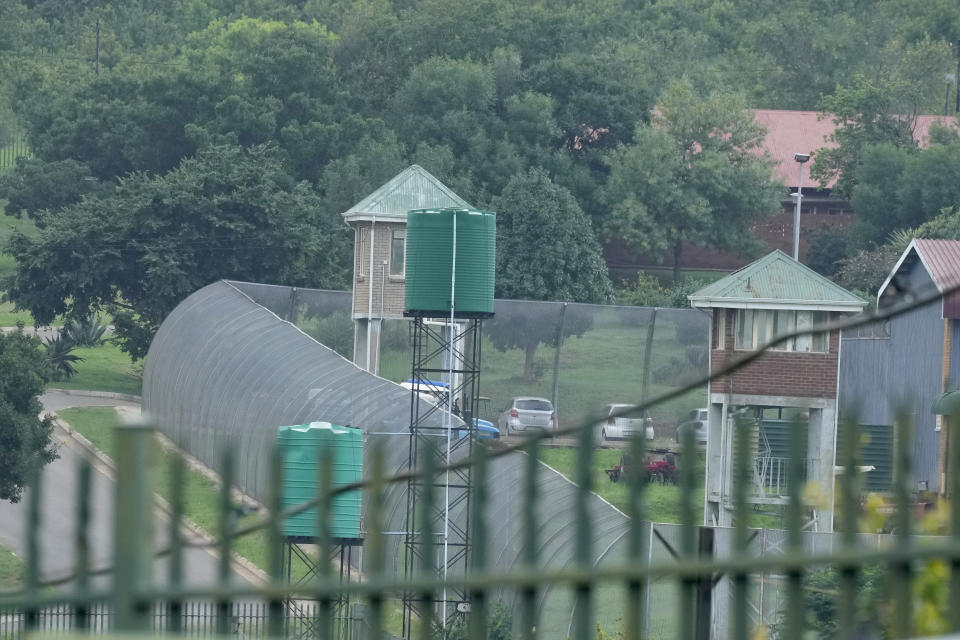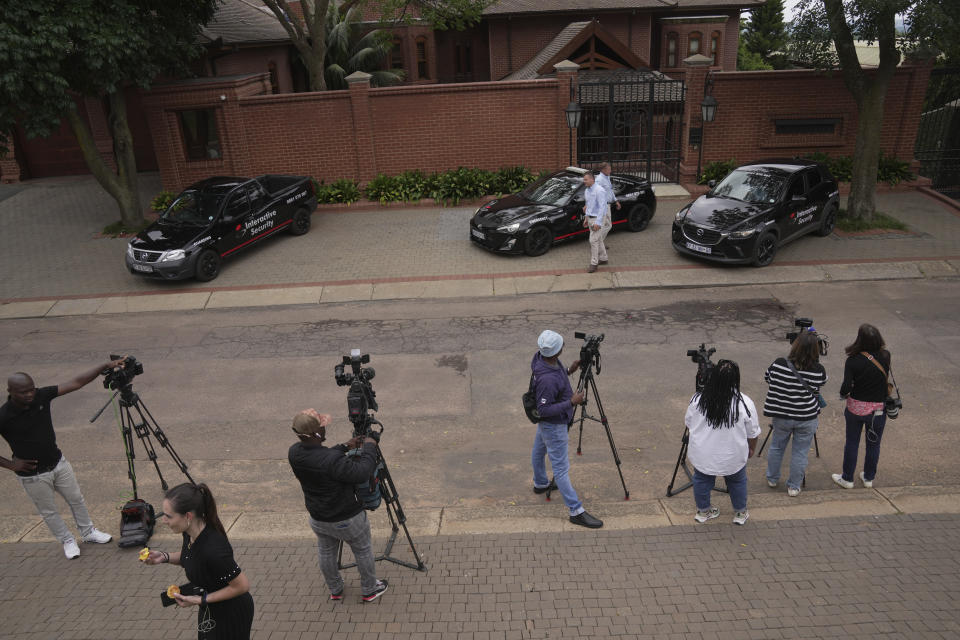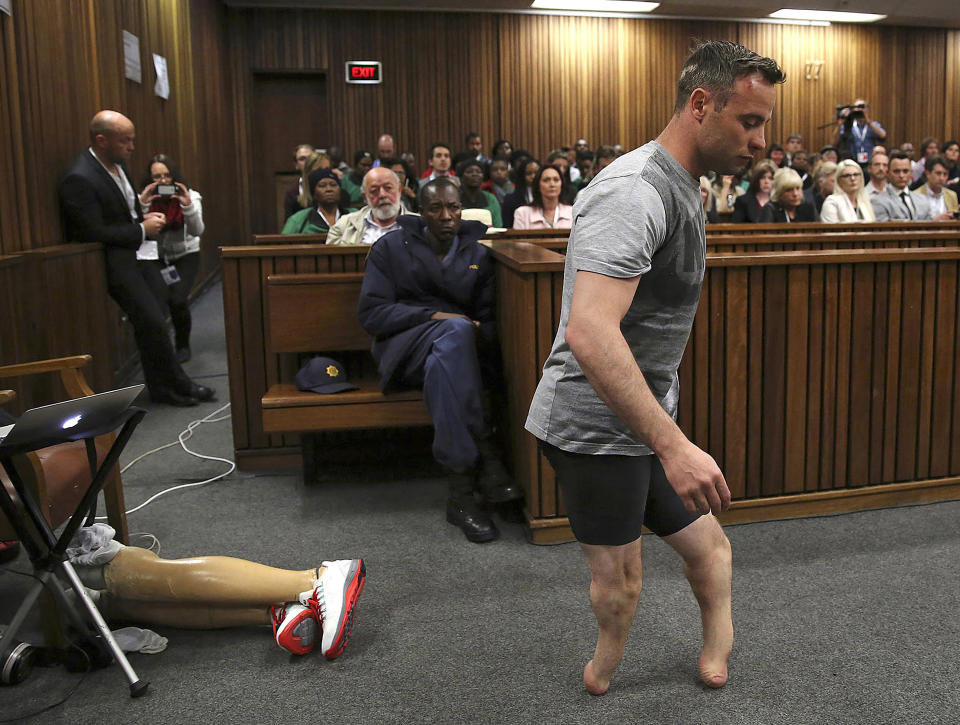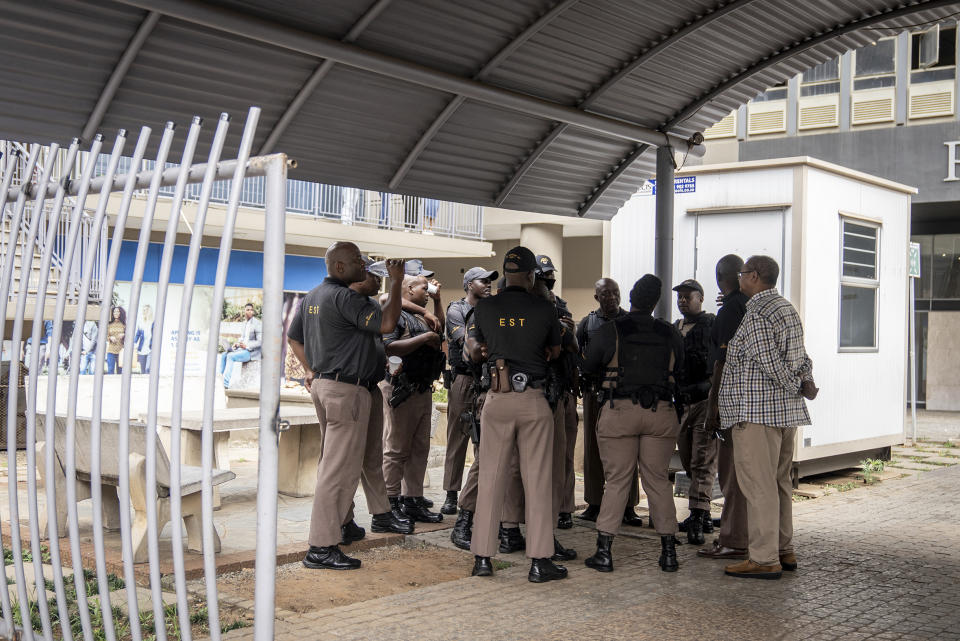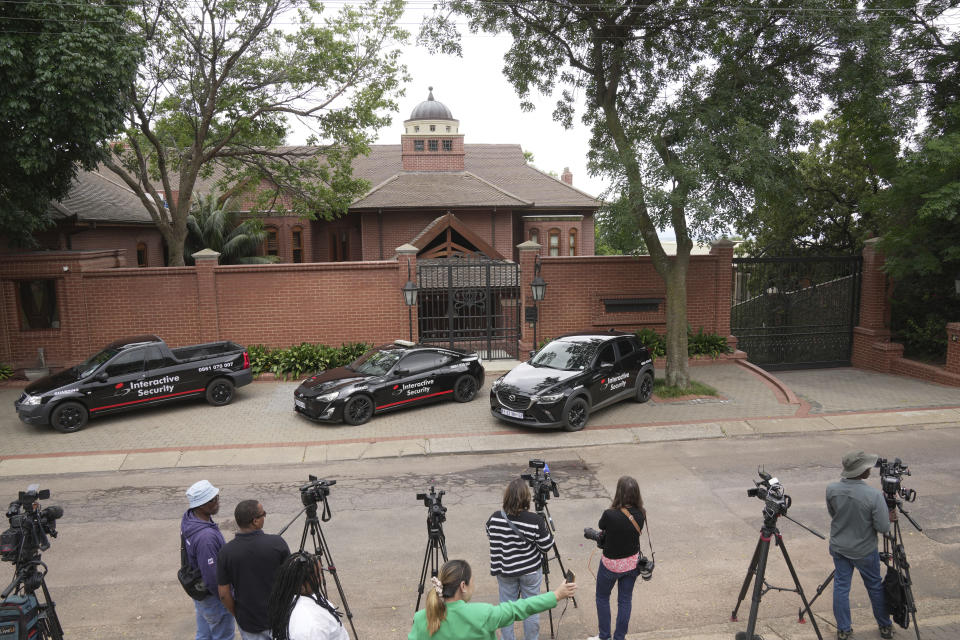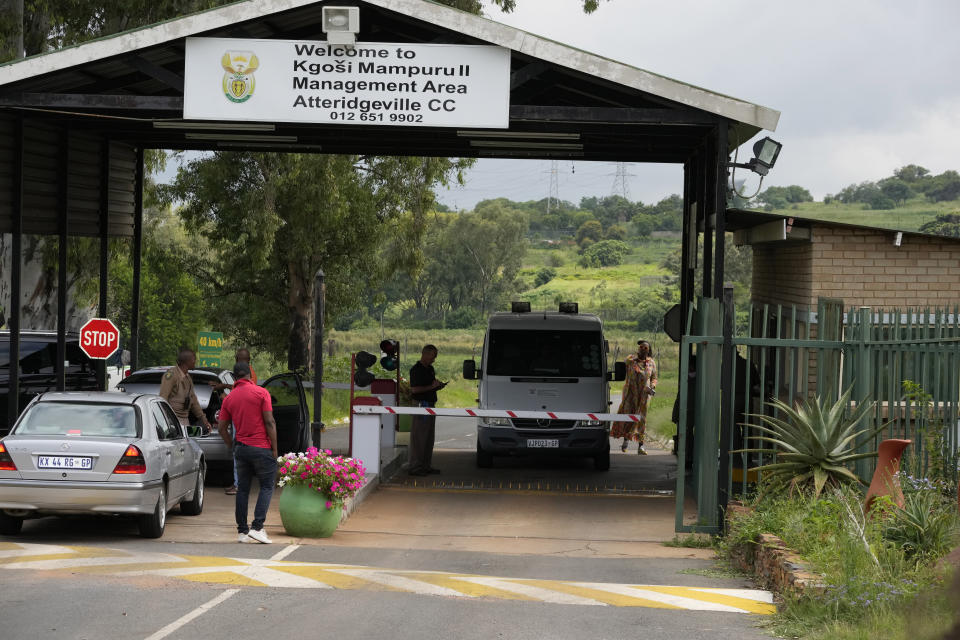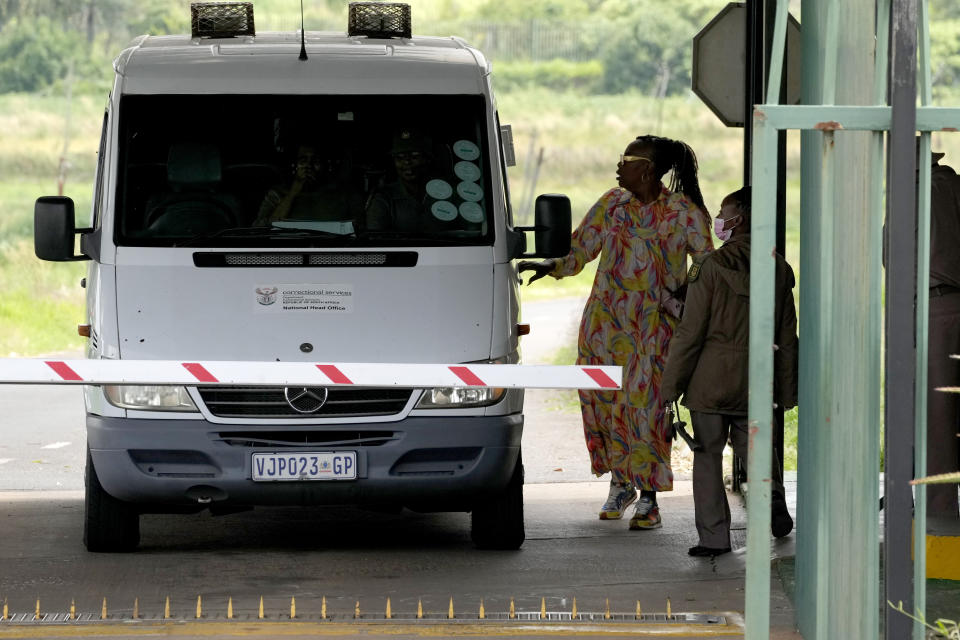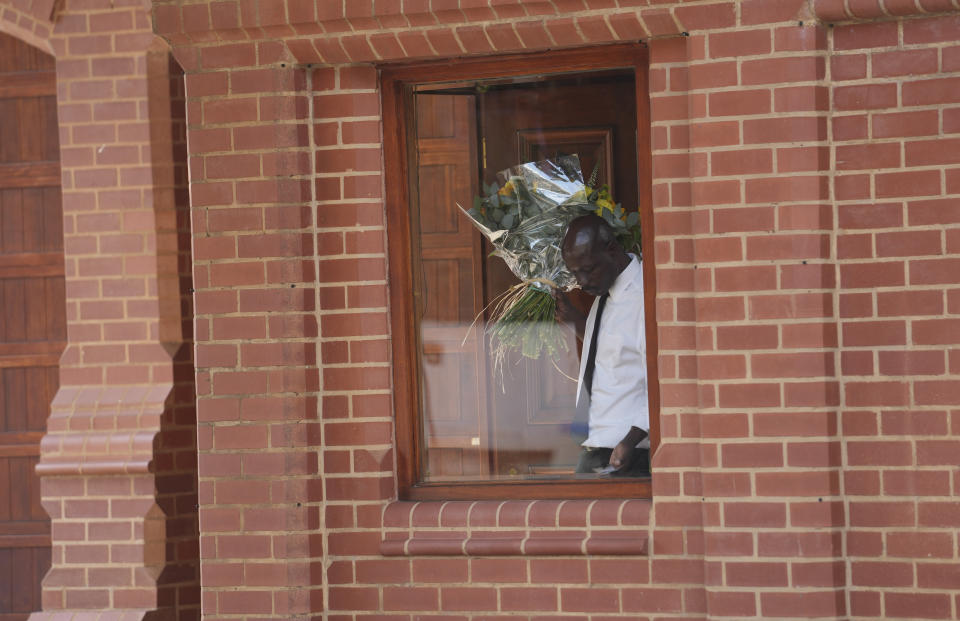Olympic sprinter Oscar Pistorius freed after serving nearly 9 years in prison for killing girlfriend
- Oops!Something went wrong.Please try again later.
- Oops!Something went wrong.Please try again later.
PRETORIA, South Africa (AP) — Olympic sprinter Oscar Pistorius, a double-amputee who became a global star competing at his sport's highest level while running on carbon-fiber blades, was released from prison on Friday after serving nearly nine years for killing his girlfriend, the model Reeva Steenkamp.
Pistorius, 37, quietly left the Atteridgeville Correctional Center in Pretoria and was processed at a parole office before being released to his family, Department of Corrections spokesperson Singabakho Nxumalo told The Associated Press. Nxumalo, who referred to Pistorius' release as an “operation” designed to avoid a media scramble, declined to give further details.
“I can only tell you he was released this morning,” Nxumalo said.
Pistorius served nearly nine years of his murder sentence of 13 years and five months for the fatal shooting of Steenkamp at his home on Valentine’s Day 2013. He became eligible for early release having served at least half his sentence, and was approved for parole in November.
Pistorius will live under strict parole conditions, including a ban on speaking to the media, until his sentence expires in December 2029. He is expected to initially live at his uncle’s mansion in the upscale Pretoria suburb of Waterkloof, which is where he stayed during his seven-month trial in 2014.
A police van was outside that house and a police officer was seen coming out later Friday. The officer declined to comment to reporters. Three black private security vehicles were also parked in front of the mansion.
Pistorius and his brother and sister grew up under the care of their uncle and aunt, Arnold and Lois Pistorius, after becoming estranged from their father. Pistorius' mother died when he was a teenager. Arnold Pistorius was seen driving out of the home, as was Pistorius' sister, Aimee
Pistorius' trial drew a horde of media from around the world, and even though corrections officials warned ahead of time that he wouldn't be “paraded” for the cameras upon his release, a few dozen reporters, photographers and TV cameras were camped outside the prison in the hopes of seeing him.
Pistorius maintains that he shot the 29-year-old Steenkamp in error after mistaking her for a dangerous intruder hiding in a bathroom in his Pretoria villa in the middle of the night. He fired four times through a locked toilet cubicle door, hitting Steenkamp in the head, hip and hand. He claimed he fired in what he believed was self-defense and that he didn't know it was his girlfriend in the cubicle. Prosecutors alleged that he intentionally killed her in anger during an argument.
In addition to her modeling career, Steenkamp was a reality TV star with a law degree who had become an activist against the scourge of violence against women in South Africa — a tragic irony given how she died. She and Pistorius had only been dating for a few months.
Steenkamp’s mother, June Steenkamp, said in a statement Friday that she had accepted Pistorius’ parole, although the pain of her daughter's death was “still raw and real.” Steenkamp's father, Barry Steenkamp, died last year.
“Has there been justice for Reeva? Has Oscar served enough time? There can never be justice if your loved one is never coming back, and no amount of time served will bring Reeva back,” June Steenkamp said. “We who remain behind are the ones serving a life sentence.”
“With the release of Oscar Pistorius on parole, my only desire is that I will be allowed to live my last years in peace with my focus remaining on the Reeva Rebecca Steenkamp Foundation, to continue Reeva’s legacy.”
The Department of Corrections has emphasized that the champion Paralympic sprinter's release — like every other offender on parole — doesn't mean he has completed his sentence.
Pistorius’ parole conditions include restrictions on when he’s allowed to leave home, a ban on consuming alcohol, and orders that he must attend programs on anger management and violence against women. He must also perform community service.
Pistorius also will have to regularly meet with parole officials and will be subjected to unannounced visits by authorities. He is not allowed to leave the Waterkloof district without permission and is not allowed to speak to the media until the end of his sentence. He could be sent back to prison if he is in breach of any of his parole conditions.
South Africa doesn't use monitoring devices on parolees. But the Department of Corrections said a parole official will constantly monitor Pistorius, who will have to inform the official of any major changes in his life, such as if he wants to get a job or change addresses.
Once a wealthy athlete who drove sports cars and was endorsed by Nike, Pistorius was left broke after his lengthy murder trial, his chief defense lawyer said in 2014. He sold the house where he killed Steenkamp to pay some of his legal bills.
Steenkamp’s family did not oppose his parole application in November, although June Steenkamp said then that she didn’t believe Pistorius had been fully rehabilitated and that he was still lying about the shooting.
Before the killing, Pistorius was seen as an inspiring role model after having had both of his legs amputated below the knee as a baby because of a congenital condition. He became a champion sprinter on his carbon-fiber running blades and made history by competing against nondisabled athletes at the 2012 London Olympics.
His trial destroyed his image. He was accused of being prone to angry outbursts and acting recklessly with guns, while witnesses testified about altercations he had with others, including an argument in which he allegedly threatened to break a man’s legs.
Pistorius was first convicted of culpable homicide — a charge comparable to manslaughter — and sentenced to five years in prison for killing Steenkamp. After appeals by prosecutors, he was ultimately found guilty of murder and had his sentence increased, although that judgment by the Supreme Court of Appeal still didn’t definitively rule that he knew it was Steenkamp behind the bathroom door.
Pistorius was sent to prison in 2014, released on house arrest in 2015 during an appeal, and then sent back to prison in 2016. He was initially incarcerated at the maximum security Kgosi Mampuru II Prison in Pretoria but was moved to Atteridgeville early in his sentence because it's better suited to holding disabled prisoners.
Reaction to Pistorius’ parole has been muted in South Africa, in stark contrast to the first days and months after Steenkamp’s killing, which sparked angry protests outside of the courthouse calling for him to receive a long prison sentence. There is no death penalty in South Africa.
“He has ticked all the necessary boxes,” said Themba Masango, secretary general of Not In My Name International, a group that campaigns against violence against women. “And we can only wish and hope Oscar Pistorius will come out a better human being.”
“We tend to forget that there is a possibility where somebody can be rehabilitated.”
___
Imray reported from Cape Town, South Africa.
___
More AP coverage of Oscar Pistorius: https://apnews.com/hub/oscar-pistorius
